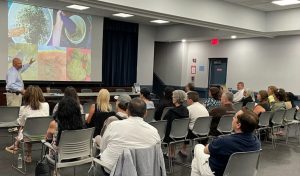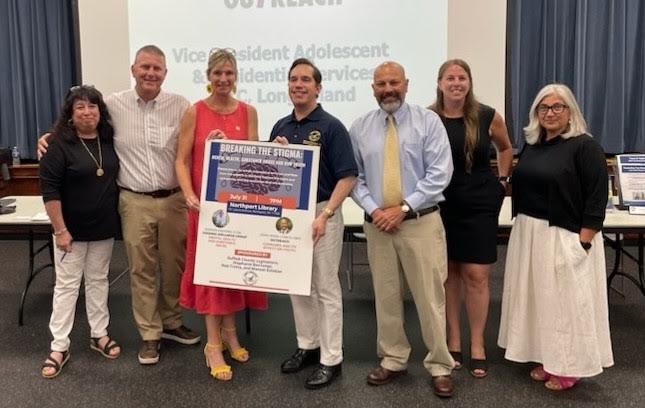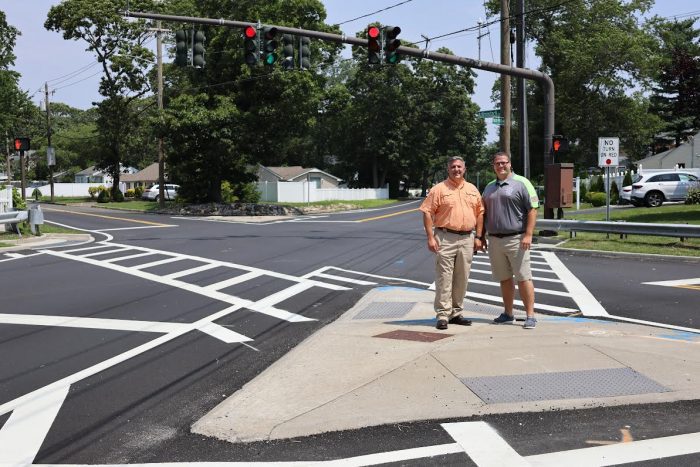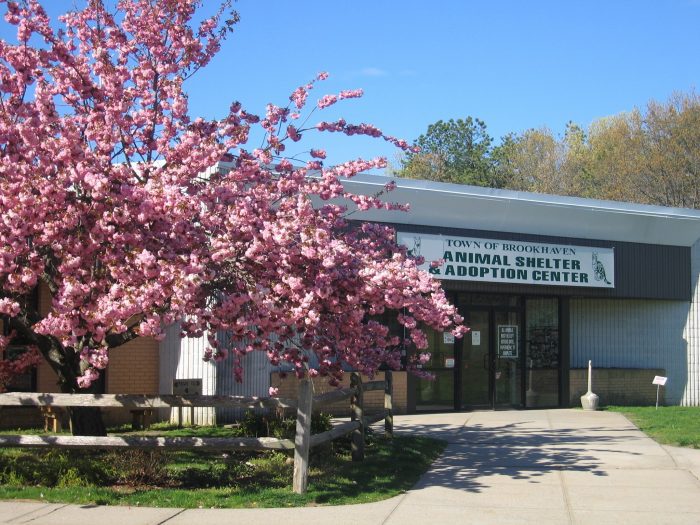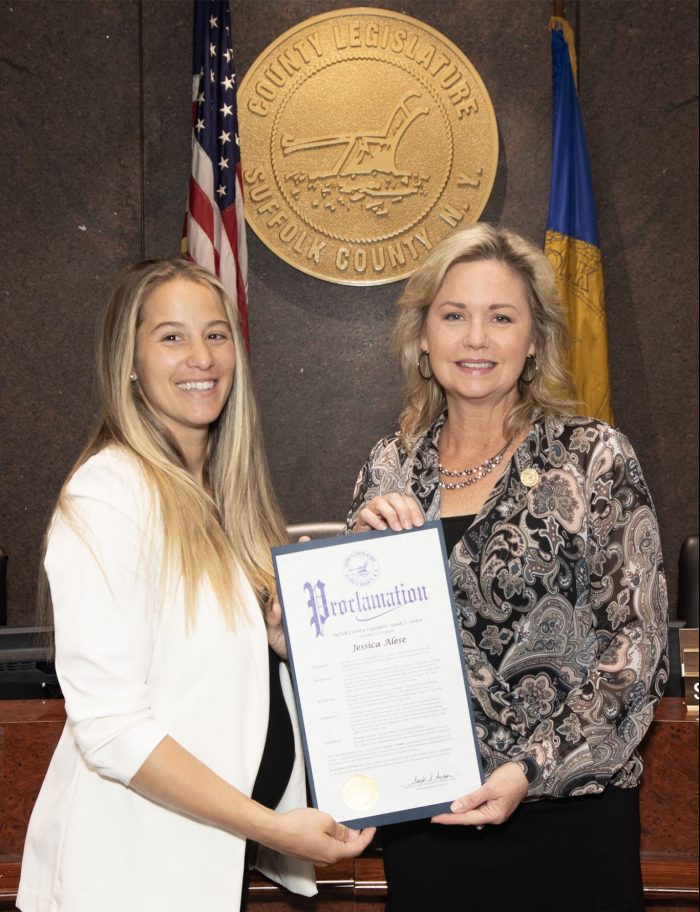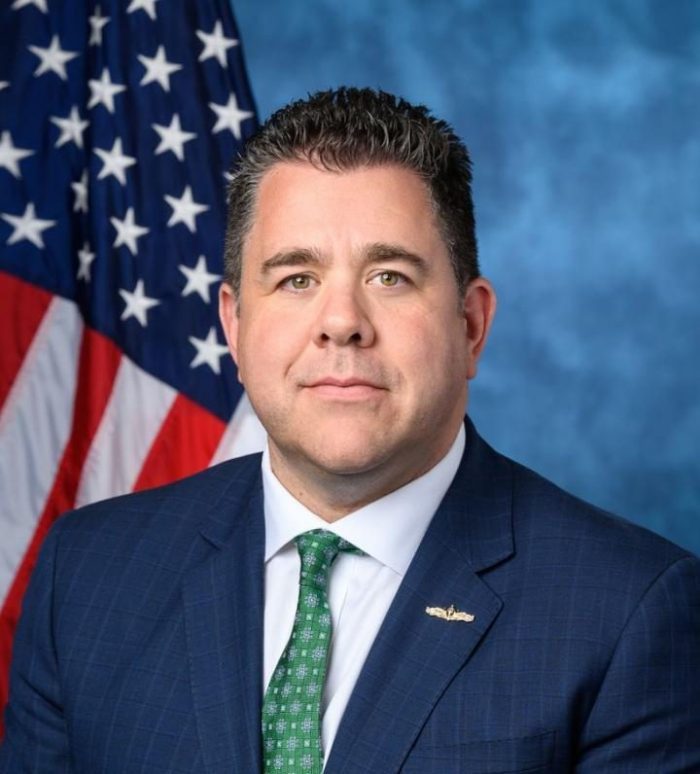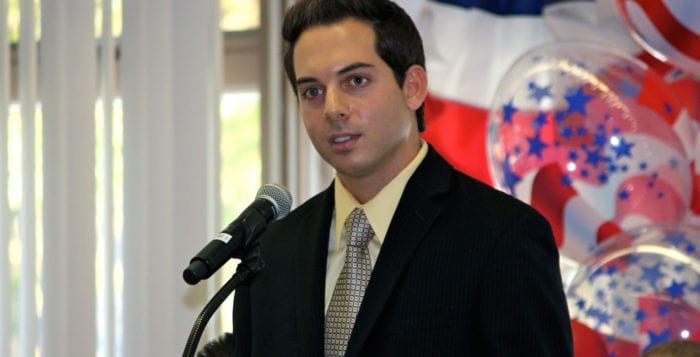Freshman U.S. Congressman Nick LaLota (R-NY1) held the third telephone town hall event of his tenure Wednesday, July 26.
During this event, he addressed the exorbitant utility costs shouldered by Suffolk County residents, opined on rising opioid overdose deaths in the county and around the nation, and condemned the federal government’s handling of immigration.
Utility rates
County residents, on average, pay $226 per month on electricity, 28% higher than the national average, according to EnergySage. Pressed by one caller about how he would help lower energy bills for 1st District residents, LaLota proposed an “all-of-the-above energy strategy.”
“There’s battery, there’s wind, there’s solar,” he said. “I think that we should explore it all, and we should take advantage of everything that is on the table.”
He tied energy development to national security. By promoting homegrown energy sources, LaLota maintained that utility costs would begin to decrease along with American dependence on foreign energy.
“I think that increasing American energy independence will not only increase the supply of energy, it will bring the prices down,” he said. “A correlated benefit of that is we have to buy less oil from Russia, from Venezuela and from the Middle East.”
The U.S. Environmental Protection Agency considers petroleum “a significant source of emissions of methane” while “drilling for oil may disturb land and marine ecosystems.” Despite these environmental risks, LaLota expressed support for expanding domestic drilling.
“Forty-something billion barrels of proven oil reserves are underneath our feet,” he said. “We can get those resources out of the ground safely. It will help bring energy prices down, both at the pump and what it costs to heat your home.”
SALT deductions
The congressman said he and members of a bipartisan caucus are working to repeal the $10,000 cap on state and local tax, or SALT, deductions created under the 2017 Trump-era Tax Cuts and Jobs Act.
“We used to be able to, as New Yorkers, deduct an unlimited amount from our federal taxes that we paid into our state and local taxes,” LaLota said. “Right now, it’s capped at $10,000.”
LaLota said he had prepared legislation to increase the maximum federal SALT deduction to $60,000 for individuals and $120,000 for families. He pledged to oppose any tax package proposed by the Republican majority in the U.S. House which does not include “a reasonable accommodation” on SALT.
“I’m going to say ‘No SALT, no deal for real,’” he added. “I’m in it until the end.”
Immigration
LaLota denounced President Joe Biden’s (D) handling of the U.S.-Mexico border and New York City’s “sanctuary city” designation.
He said he supported two recently passed resolutions barring public schools and colleges from housing migrants, legislation that comes on the heels of a proposal to house asylum seekers at Stony Brook University. [See story, “With Hochul’s asylum plans uncertain, policymakers weigh in as county issues emergency order,” June 1, TBR News Media website.]
“I don’t think that we ought to be mixing unvetted migrants with our school-aged children,” LaLota said.
He also suggested that migrants receive disproportionate government assistance to other vulnerable groups.
“Right now, the homeless shelters in New York have more migrants in them than they have American citizens,” the congressman said. “Veterans, the mentally ill, drug addicts, they’re not getting the government resources they need because they’re being diverted to folks who are not in this country legally or are manipulating the asylum process.”
He added, “I think that needs to change.”
The congressman proposed reinstituting Title 42, a pandemic-era immigration policy allowing swift expulsion of asylum seekers over public health concerns.
“I support increasing funding for [U.S.] Customs and Border Protection, building more physical barriers, investing in technology and vehicles, and hiring more asylum judges,” he said, adding, “But what’s absent is we need leadership from the executive branch.”
Opioid epidemic
The most recent data from the New York State Department of Health indicate overdose deaths and those involving synthetic opioids had “significantly worsened” in Suffolk County between 2019 and 2020 — deaths in 2020 totaling 363, up 88 from the previous year.
Fentanyl “is coming in at ports of entry, it’s coming in between ports of entry,” the congressman said, advocating for beefier border security measures to reduce opioid deaths.
LaLota said the House-passed Stop Chinese Fentanyl Act would sanction Chinese companies “who are putting this poison into our system and killing our young folks,” adding, “We should exercise all other options on this.”
